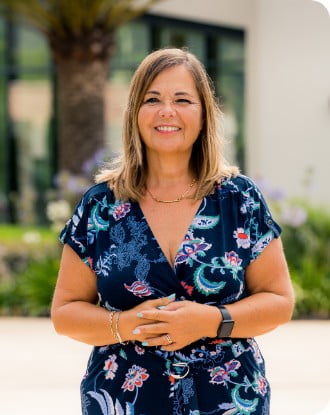What is an energy efficiency certificate?
Energy Performance Certificates (EPC) or as they are correctly called, Energy Performance Certificate (EEC), are documents that show how energy efficient your home is shown as a rating from A to G. Just like the stickers you see For appliances such as refrigerators, freezers, washing machines or air conditioning units, the energy efficiency certificate in Spain grants the property a standard energy efficiency and carbon emissions class from 'A' to 'G', with 'A' being the most efficient and 'G' the least efficient.
Who needs an energy efficiency certificate in Spain?
Any property for sale or long-term rental must have an Energy Efficiency Certificate in Spain. This does not apply to homes that are currently rented long term. These only require an Energy Efficiency Certificate when entering into a new rental contract.
There are exceptions?
If you have a long-term tenant, you do not need an Energy Efficiency Certificate in Spain. If your home was built after October 2007, you may already have the Spanish Energy Efficiency Certificate. To check this, consult your plans with the architect and contact him. Likewise, if you only rent your property on a short-term basis, such as holiday lets, you may not need an EPC in Spain. Please contact us for more information.
Can I rent or sell my house in Spain without EPC?
No, you are legally obliged to present your energy efficiency certificate in Spain when your home is for sale or long-term rental. When you sell your house, the notary will need the original EPC and when you rent your house in Spain, the tenant must receive a copy of your Energy Efficiency Certificate in Spain.
When will this come into effect?
The law was formalized on April 5, 2013 and will come into force on June 1, 2013. This applies to properties that are currently offered for sale or new rental and to properties that are new to the market. Whether your property is for sale or rent, you must have a Spanish Energy Performance Certificate before your property can be advertised. This does not apply to current long-term rentals. If you already have a long-term tenant in your home, you will not need the EPC in Spain until you have a new rental contract.
Who can issue the energy certificate in Spain?
Only certified and registered experts can issue the energy efficiency certificate in Spain. This includes architects, technical architects and some engineers.
How can I obtain an energy efficiency certificate for my property?
You will need to contact a registered appraiser who can help you obtain your energy efficiency certificate in Spain. We have registered experts and we can issue the EPC in Spain
How much does an EPC cost in Spain?
Costs depend on the size of your property, so contact a registered valuer for more information. We believe that our prices are currently the best on the market. If you find a company that beats our prices, please let us know so we can try to at least match them. Payment is due after the Energy Certificate is issued. You do not have to pay in advance for your Energy Efficiency Certificate in Spain.
Who must pay the energy certificate?
Ultimately, the owner of the home here in Spain will have to pay the energy certificate.
What happens if I get a low grade on my EPC?
Together with your energy efficiency certificate in Spain you will receive a report with advice on how to improve the energy rating of your property. . The report recommends cost-effective measures that can be taken to improve the property's energy rating. It also contains information about the rating that could be achieved if all recommendations were implemented.
Why have energy efficiency certificates been introduced?
The EPC has its roots in the Kyoto Protocol, a global initiative launched in 1997 to address the issue of greenhouse gases. Since then, the European Union has drawn up the European Directive on the energy efficiency of buildings, which applies to all Member States with a clearly defined timetable of the measures we must introduce. An Energy Performance Certificate (EPC) is a certificate that certifies the energy label of a building. It is part of the "Energy Performance of Buildings Directive" (EPBD).
How is the evaluation of my EPC carried out in Spain?
A registered energy expert will visit your home and take measurements and records of things like your air conditioning, hot water system, type of windows, type of insulation, type of construction, etc. The measured values are then entered online into one of the government-approved programs that will generate the rating for your property based on energy efficiency and environmental impact. The programs used are the same for all homes, so a potential buyer or renter can see the expected energy costs for each home viewed. Your energy efficiency certificate in Spain will be registered with the Cadastre reference of your property.
Do I need an EPC if I only rent my house for holidays?
Yes, you will generally need an EPC in Spain even if you are only renting your property for holidays, although there are exceptions.
What happens if I rent my home through a real estate agency?
You or your agent must have a Spanish energy certificate for your property for long-term rental or sale. A real estate agent is not legally allowed to offer your home for long-term rental or sale without a certificate.
Can I advertise my home without an energy certificate?
No, you need an energy efficiency certificate in Spain to be able to advertise your property for sale or rent.
How long does it take to obtain the energy efficiency certificate in Spain?
The Energy Efficiency Certificate in Spain is valid for 10 years.
What happens if I make changes to my property in Spain?
You can revalue your property at any time during the period that your EPC is valid in Spain.
What happens if I already have a tenant?
If you have a long-term tenant, you do not need an EPC in Spain. However, when you issue a new tenancy agreement, you will need the incoming tenant's EPC.
Can I get into trouble if I don't get an EPC?
The government has said it will fine people who have a property for sale or rent that does not have an “EPC”.
You can instruct us to sell your property knowing that we can ensure your EPC is delivered quickly, efficiently and at a competitive cost from an accredited EPC provider in Spain.












